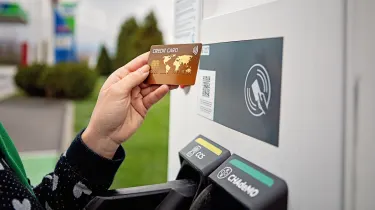
The price of roadside electric car charging remains close to record levels, widening the divide between the cost of public and domestic charging and creating a barrier in the electrification of Britain’s roads, according to one of the UK’s leading motoring organisations.
Data from the RAC’s Charge Watch campaign shows the average cost of a public rapid charger (one which can charge at speeds of anything between 50-149kW) currently stands at 79.19 pence per kilowatt-hour. But what does this mean in practice?
In practical terms, charging at such a rate would cost you roughly £35 for a 20-80 per cent charge of the new Tesla Model Y Long Range’s 75kWh (usable) battery pack. An identical charge of the Vauxhall Corsa Electric’s 48kWh battery would cost around £23 and around £31 for the Kia Niro EV’s 64.8kWh unit.
Even at the current energy price cap of 25p per kilowatt hour, charging the Tesla from 20-80 per cent at home would still cost you less than a third (£11.25) of what you’d have spent using a public rapid charger.
RAC spokesperson, Rod Dennis, said: “Our figures highlight the huge gulf in prices between those paid by EV drivers to use public chargers, and what homeowners with EVs pay at home.”
Rapid charging firms will tell you that the cost associated with rapid charging comes with its convenience and speed. However, according to the RAC, there are also other factors at play; chargepoint operators (CPOs) are investing huge sums into expanding the UK’s charging infrastructure, and while residential electricity bills are protected by regulator Ofgem’s price cap, no such thing exists for the public charging sector, meaning there is no limit to what CPOs can demand.
The real issue for many in the industry, however, it’s what’s known as the “pavement tax”. Using any public charger – including slow ones that you find at the side of the road, or attached to lampposts – requires you to pay the standard 20 per cent rate of VAT, as opposed to the much lower five per cent rate afforded to domestic or commercial electricity.
While data from the RAC shows that the average EV driver conducts just 15 per cent of their charging using public facilities, many do not have that option and would therefore be forced to pay the higher price of using public chargers. Even using one of the aforementioned slow chargers (which set drivers back around 49 pence per kilowatt-hour on average) works out still more expensive than their domestic counterparts.
“It’s vital that public charging costs for drivers come down,” Dennis continued. “Reducing the rate of VAT charged on electricity sold at EV chargers from the present 20 per cent to match the 5 per cent charged to domestic customers would be a huge help, but this wasn’t included in last month’s Budget.”
Dennis also hinted that a future review from Ofgem could see the fees charging networks have to pay redcued, which could in turn bring costs down for consumers.
The head of trade body, ChargeUK, Vicky Read, also called for reform. She said: “[We need] to help charge point operators offer public charging that is as affordable as possible. But [they] are faced with significant costs outside their control. Standing charges for rapid charging have risen more than 10-fold in the past 18 months, wholesale electricity prices remain among the highest in the EU28, and operators in the UK do not benefit from carbon credit schemes, unlike many of our European counterparts.
“We call on the Government and Ofgem to act now to ensure that affordability is not a hurdle in the transition to EVs.”
